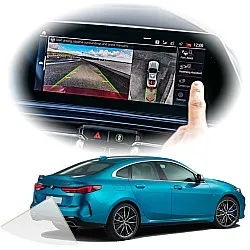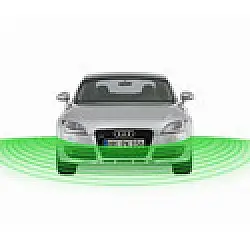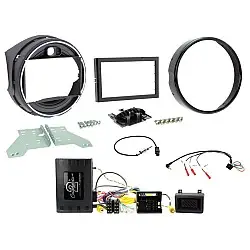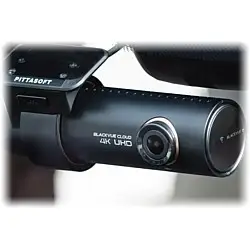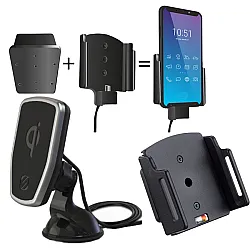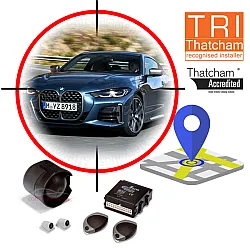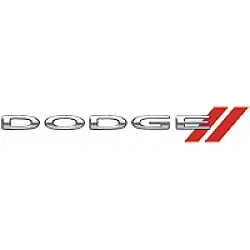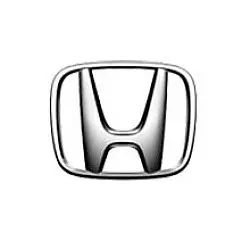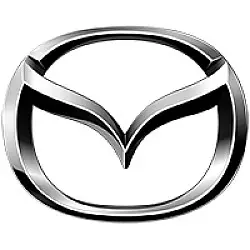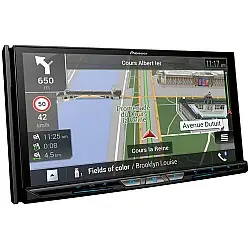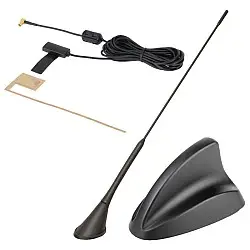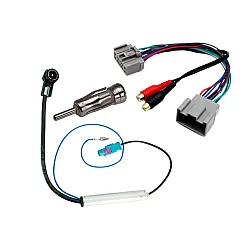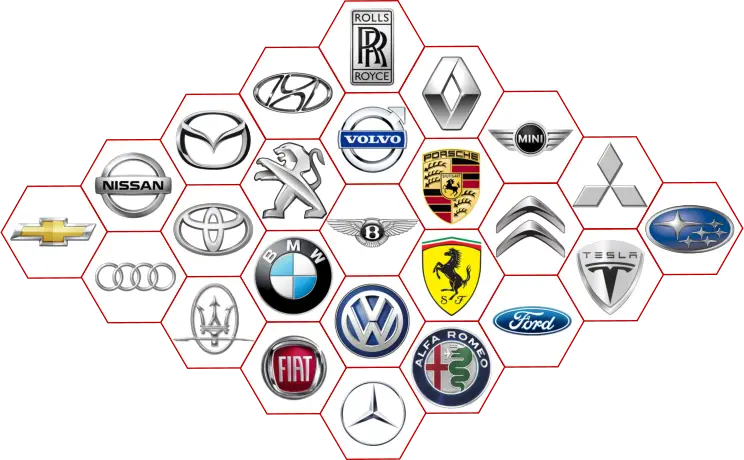Get up to speed with 2020’s new driving laws
.webp)
UK drivers have a lot of changes coming their way in 2020. They’re being brought in due to a variety of underlying reasons, including Brexit-related issues and climate concerns. Safety is another big factor behind some of the new law changes, and many of them are intended to raise the general standard of the cars on UK roads (as well as the behaviour of everyone driving them!). While there are still questions around the idea of whether in-car tech like reversing cameras will actually become mandatory, the updates to the MOT test are rather more clear cut. Here’s the full list of what you can expect to see in the near future!
Climate concerns
New cities to adopt London’s Ultra Low Emissions Zone
In recent years, London has been taking steps to tackle its infamous air quality problem, which is estimated to contribute to between 28,000 and 36,000 deaths every year. One of its main initiatives has been the Ultra Low Emissions Zone, which sets strict emissions requirements for vehicles driving through certain areas of the city at select times of day, and imposing fees on vehicles which don’t meet these standards. Though London is currently the only place in which this legislation is in force, it looks like other cities are set to adopt it too, such as Leeds and Birmingham - which means drivers who live in major UK cities would do well to bear their own emissions standards in mind.
Rising taxes on higher emissions cars
Alongside the steady expansion of the ULEZ, many UK drivers will have already noticed their vehicle excise duty bill (their car tax, in other words) rising by £5. As above, it’s those with the oldest or highest polluting vehicles who’ll be most affected - some drivers can be charged up to £15 more each year, and it may be even higher for those who own a diesel vehicle. What’s more, new drivers or those looking to buy a new car can find that new emissions standards can add as much as £65 in extra costs.
Changes to national and international standards
European permits
Whatever you’ve thought of Brexit over the last few years, it’s fair to say that the topic has always been surrounded by a fair degree of confusion. As of the time of writing, that’s still the case with European driving permits. In the event of a no-deal, the government are considering the likelihood that our UK driving licences may well be considered invalid on the continent, which will involve UK drivers paying an extra £5.50 on an international permit that allows British citizens to drive in the EU. If you’re planning that sort of excursion you'll also need a motor insurance green card, which you’ll need to get from your insurer well in advance of your trip.
MOT requirements
The MOT is regularly revised by the UK authorities, to ensure that it continues to meet its primary aim of holding our vehicles to an appropriately standard, thereby safeguarding public health and the environment. With that in mind, new categories for car defects have recently been created, which means they now include:
- Pass - vehicle is safe for use on the road.
- Advisory - an issue which could become a problem in future
- Minor - not an immediate safety threat, but should be prioritised by the driver for repair
- Major - poses a potentially serious threat to safety or environmental health. Automatic fail.
- Dangerous - poses a tangible and immediate risk to safety or environmental health. Automatic fail.
The MOT test will also examine the car for:
- Under-inflated tyres
- Contaminated brake fluid
- Brake pad warning lights, and any missing brake pads or discs
- Reversing lights (for vehicles that were manufactured after September 2009)
- Daytime running lights (for vehicles that were manufactured after March 2018)
New drivers
Driving lessons on motorways
As the law has stood up until recently, new drivers were prevented from taking their cars onto motorways until they’d passed their test. However, if they choose to, student drivers can now venture out onto these types of roads, provided they’re accompanied by an instructor with dual controls. It’s still optional but broadly recommended, as motorways can be particularly intimidating places to be for inexperienced drivers.

Restrictions on new drivers
Following a trial scheme being rolled out in Northern Ireland last year, the UK government is currently considering graduated driving licences. Essentially, one of the main impacts of this kind of scheme is that drivers who’ve owned their licences for less than a set period of time (currently two years) will face more severe consequences for infractions than experienced drivers. This could involve:
- Curfews - where drivers have to have parked up by a certain time each night
- Passengers - limits to how many people can accompany them in the vehicle
- Speed - lower limits than other drivers
- Engine sizes - limits on how powerful these engines can be
- Alcohol - stricter limits than experienced drivers
- Mandatory P plates - green plates that signal a driver has recently ‘Passed’ their test are currently optional, but could be made a requirement.
Safety
Cyclist safety
Thousands of cyclists are killed or seriously injured on UK roads each year, and in 2020 the government is starting a fresh drive to protect these vulnerable road users. One of the main techniques that they’re now recommending is what’s called the ‘Dutch Reach’ technique. Essentially, this involves using your far hand to open the car door rather than your nearest hand (so for drivers it would be their left). This automatically causes you to look over your shoulder as you’re doing it, which gives you a far better chance of spotting an incoming cyclist.
It also mandates that drivers have to give way to cyclists when turning left, giving fresh clarity to the Highway Code. (It’s worth saying that on-board vehicle technology such as reversing cameras and proximity sensors are also great for giving yourself an extra few seconds of warning, which can make all the difference to avoiding an accident.)
Smart motorways
Having been in development for a few years, these are now increasingly being rolled out across the UK. Essentially, they use a combination of automated technology and human monitors to react and adapt to changing traffic conditions, with the ultimate goal of aiding and easing traffic flow, so that people spend less time sitting in jams. Laws around smart motorways are expected to get even stricter - right now, drivers can face a fine of up to £100 for driving in a lane marked with a red X, as it means that this lane is closed to traffic. However, this fine is expected to rise, as is the number of associated penalty points.
In response to a common criticism regarding smart motorways, Highways England is also planning on building more emergency refuge areas for people who crash or break down.
Intelligent speed assists
Perhaps one of the most controversial legal changes on the horizon at the moment is the mandatory inclusion of an Intelligent Speed Assistance system in all EU-manufactured vehicles sold from 2022. (And yes, this will apply to the UK regardless of Brexit!) In a nutshell, Intelligent Speed Assistance uses on-board cameras to read and interpret passing road signs, giving drivers plenty of warning as to when they’re going over the speed limit. If required, they can even actively limit the engine’s power in order to keep drivers to a safe speed.
That’s just the basics of the Intelligent Speed Assistance system though. The government is also considering whether to augment it with a range of in-car tech, including (but not limited to) sophisticated automatic braking systems, lane keeping assistance, mandatory black boxes, reversing cameras, or even systems that can detect when you’re drowsy or distracted.
Some of these proposed laws are more controversial than others, but like them or not, UK drivers would do well to prepare for them to be implemented - if not this year, then not long afterwards. As you can see, safety (rightly) continues to be a very big focus for UK authorities - and we share their passion for it here at Car Communications! We stock a diverse range of on-board safety equipment like reversing cameras and parking sensors, as well as devices which can protect you from a legal standpoint, such as dashboard cameras. Feel free to shop them for yourself, or alternatively give us a call on 01254 694 537, and we’ll be happy to see how we can help!



































































